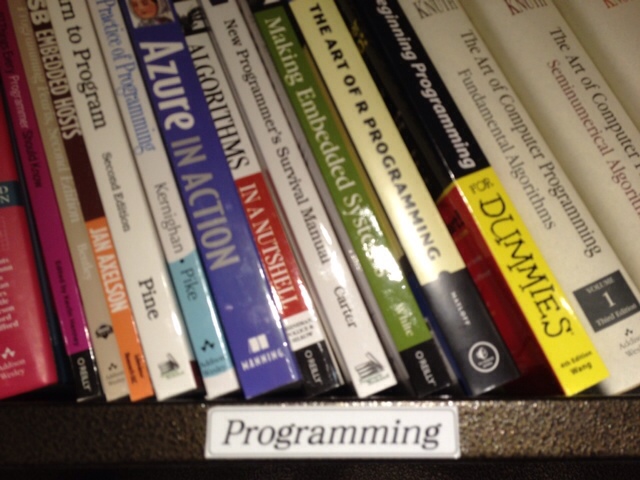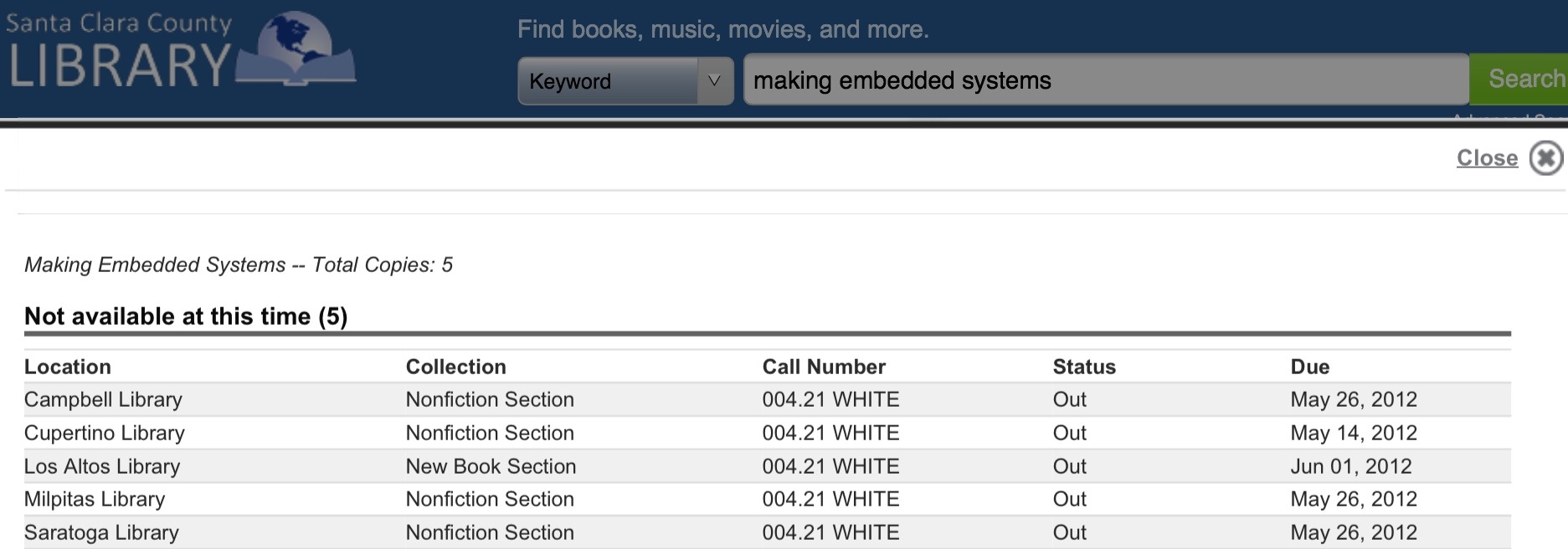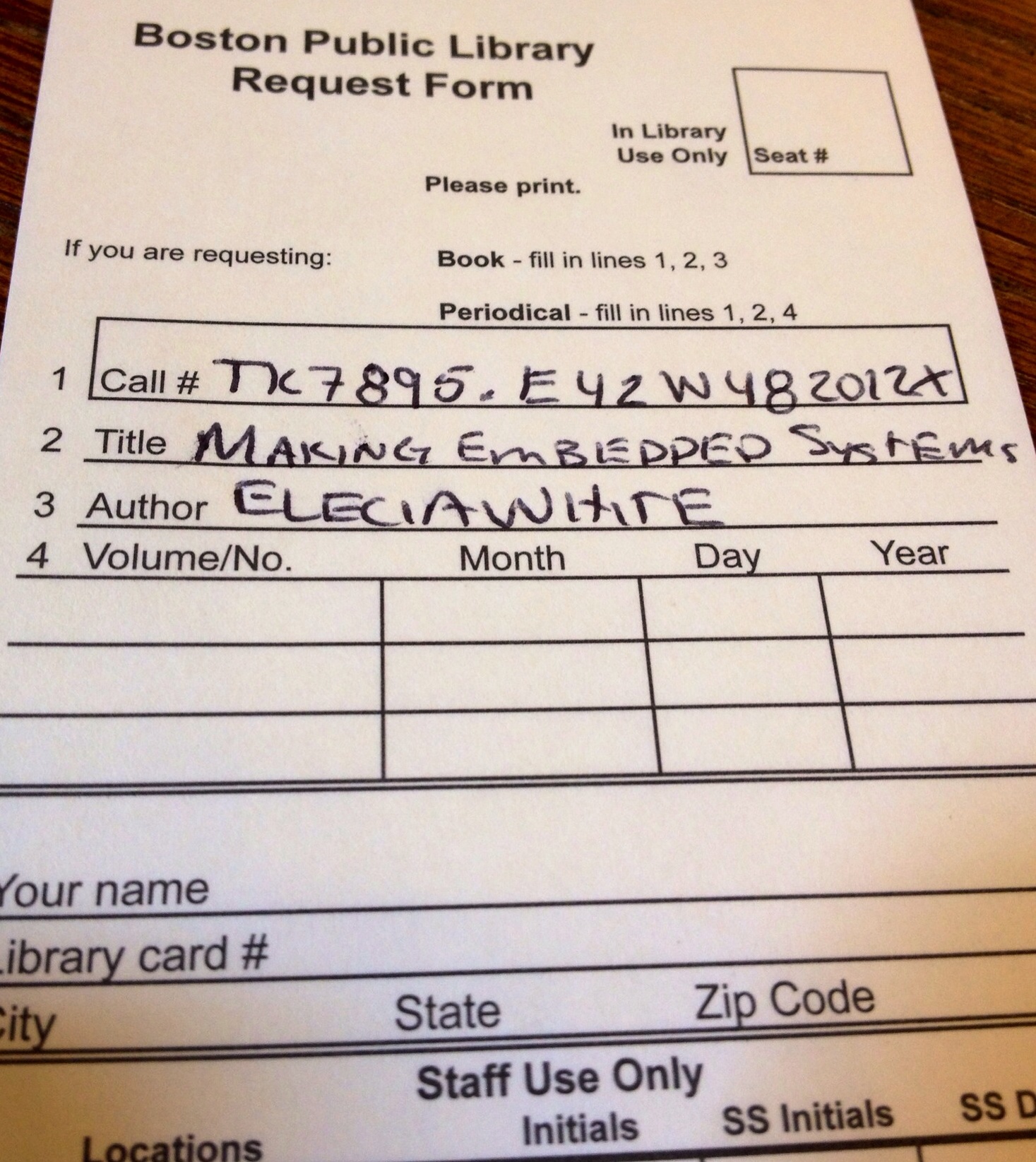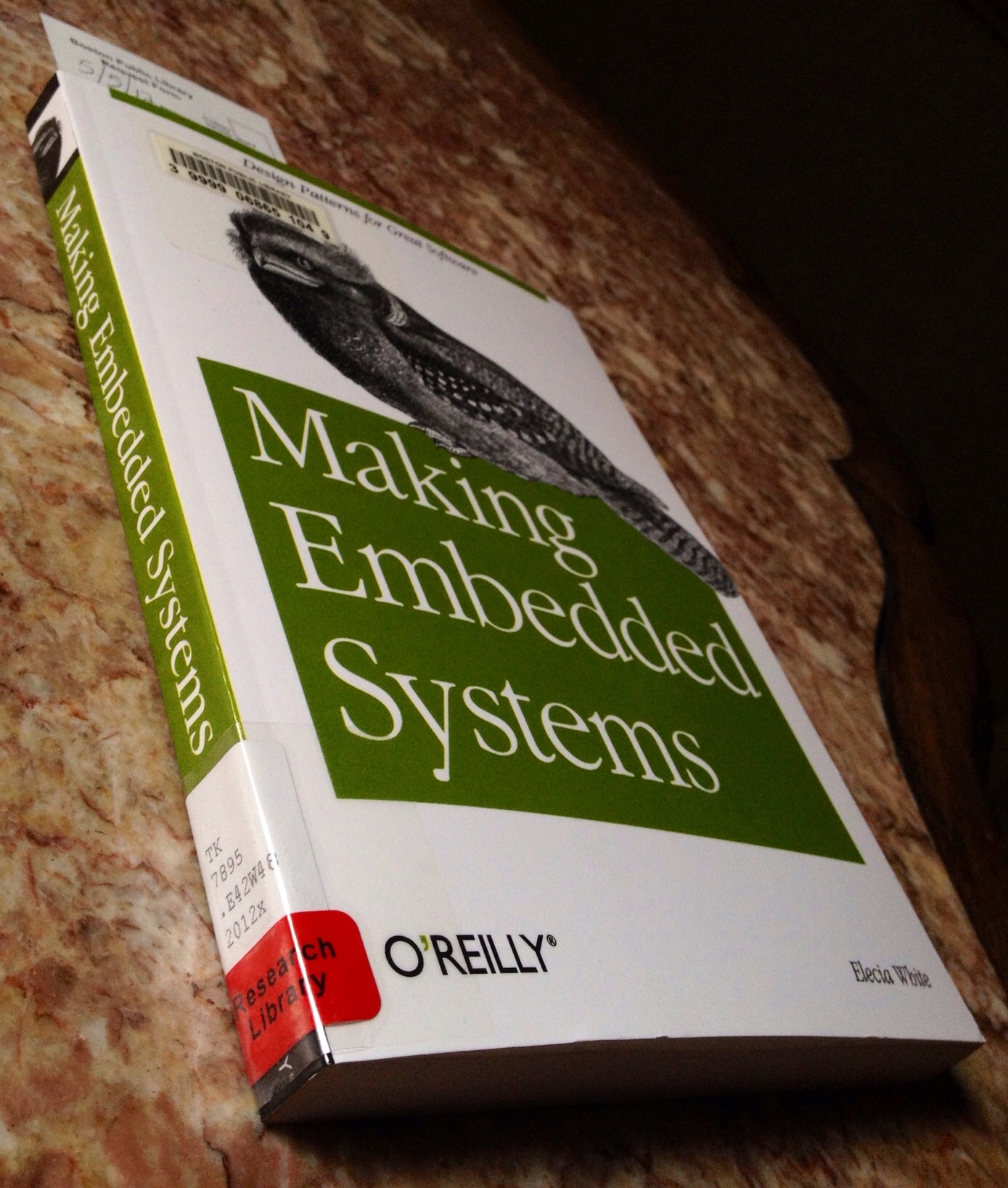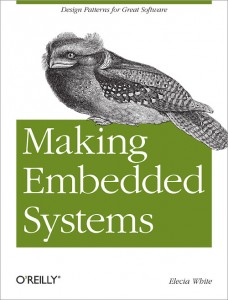One of my first reviews for Making Embedded System came on the O’Reilly site and it was a not a good review. I mean, it was a bad review (and it wasn’t particularly well written).
It was somewhat heartbreaking to have put all that work into a book and then have someone bash it. And he hadn’t really read it (one of the things he said was terrible was, funny enough, something I was saying was terrible if only he’d done more than flip through it).
Ouch. But I try (try really, really hard sometimes) to learn from mistakes and to be as mature as possible about such things. I totally agree with this author’s posting: “The biggest enemy of our careers is not bad reviews, but obscurity.” As with my view on ebook pirating, I may not like bad reviews but I do want my book to make ripples. I am not yet to Scalzi’s delighting in one star reviews but I’d almost (almost, maybe) have bad reviews than nothing. Of course, Scalzi’s examples are much funnier than mine. And he’s got a thicker skin from years of doing this.
But as we were gone on our cross country trip, two more reviews were added to my book on Amazon, heaping my collection of 5-star reviews there to a lucky 7. (Which isn’t to say that 8 or 9 or 53 would be unlucky, feel free to add more, I won’t mind.)
Now, I will admit that I know Ken Brown, one of the Amazon reviewers. And when he said, “Well, is there anything else I could do?” after tech reviewing it (and doing an awesome job with the review), I immediately asked if he could pretty please write a review.
Still, seven people like my book enough to take the time to write a review in Amazon. I’m sometimes surprised by what they liked most about it. I mean, check this out from James Langbridge, a guy I’ve never met (though we exchanged emails after he entered some errata):
This book is full of technical detail, but more importantly, it is full of wisdom. I had fun reading this, and to the question would I recommend this book to a friend? I already have, to junior members of my team.
I like “I had fun reading this”… such a wonderful thing to say about a technical book. And this:
I would say that the most valuable contribution this book makes is in explaining the design integration of hardware components and basic EE-technologies to a software developer who has not yet experienced the design of a sophisticated embedded system. – Ira Laefsky
And then on Goodreads, someone said exactly what I could have wished for:
I wish this book was around when I started working.
Because that is the book I wrote: the one I wish I had when I started.

